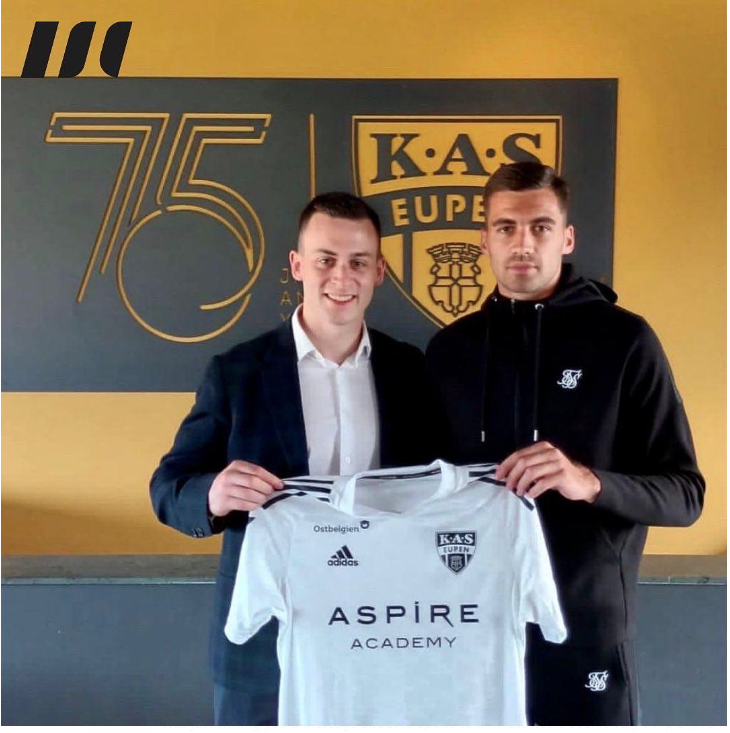
Jake Stratton-Morris

Company Name:
International Sports Consulting
Role Within the Company:
FIFA & FA Licensed Agent
Years Working in the Industry:
4
How did you first break into the industry?
Got my first taste of the talent representation world during a placement year at Loughborough University, which I spent with a big American agency called Octagon. Although at the time they did have a small football division, most of my time there was spent supporting agents across different sports. When I returned for my final year at Loughborough, I continued to support the football division voluntarily, by travelling to games across the midlands, providing match reports and scouting specific player targets they were looking at.
Unfortunately, when Covid hit during this year, I had to move home and struggled to find any sports related jobs for a long time. Eventually, through an agent I knew, he put me in touch with my current boss at ISC. He offered me a 2 week remote internship, which turned into a 6 month unpaid remote role, then developed into the full time paid role I now find myself in almost 4 years later.
What skills and qualifications are most valued in the sports business industry, and how someone acquire them?
In terms of qualifications, I think this clearly depends on what sector of the sports industry you’re looking to go into, as some will of course require specific degrees (law/sports science/physiotherapy/etc.). However, in my experience most entry level roles in sports will require a university degree of some sort (and not necessarily a sports related one). I’ve seen many people with a whole range of degrees, for example in English/Politics/History/Economics, who have carved out very successful careers, so it’s important to emphasise that there is no set route to work in sports. T
hat being said, attending specific sports related universities, such as Loughborough which I did, will inevitably offer up many opportunities in terms of alumni or industry contacts which can be extremely useful in getting those early opportunities in the industry.
In terms of skills, again not wanting to sound too cliché, one of the most important things to develop is your ability to deal with people. Having the interpersonal skills to work with people from all walks of life will take you far. The whole industry revolves around dealing with people, so if you’re not able to work effectively within a team, or communicate clearly, then you will struggle to progress.
Along the same lines, being able to speak multiple languages will help greatly not only when starting out in the industry, but throughout your career. It will set you apart from the crowd, and also add immediate value to any organisation looking to expand into different territories. In my case, speaking French and Spanish did just that, and continues to help me in my day to day career.
What are the best ways to gain relevant experience in the sports business industry?
Being shameless in using any contact you may have, or your family/friends/neighbours/etc. may have. A large part of working in sport revolves around who you know. As big as the industry may be, there is also a huge turnover of staff. So the people you meet at the start of your journey will likely stay within the similar field for their entire professional career. This not only may lead to business opportunities, but could also lead to new roles for yourself. I would also add once you’ve decided on a specific part of the sports industry you would like to work in, is to search LinkedIn and reach out to anyone you think could offer advice or a leg up in the industry.
However what is key here, is to personalise each approach, which will take far more time, but I can assure it will give you the highest chance of a reply. The amount of messages I receive that simply say something along the lines of “Hi my name is X, I recently graduated from Y and I’m really passionate about sport. Do you have any roles available?” is weekly. You need to give the person you are reaching out to a reason to reply / make it as easy as possible for them to reply. Comment on a recent bit of work their company did, explain why you liked it by linking it to perhaps a project you worked on at university or simply something in your life, give some background on yourself and most importantly say how you could add value to the person you are reaching out to. If you follow a simple process like this and repeat it a hundred times, you will get far more conversations started with people in the industry, rather than blanket sending the same generic message a hundred times. Now I need to stress you will still get ignored many times simply down to the fact people are very busy and they might not see your message, but never know where one conversation with the right person on LinkedIn will lead to, so don’t give up!
Good resources you would recommend?
One of the best people to follow online is a sports lawyer called Daniel Geey. He’s arguably the most respected sports lawyer in Europe, negotiating record breaking Premier League deals in recent years including Declan Rice’s Arsenal move amongst many many more. On top of this he’s an accomplished public speaker who travels the world giving talks on the sports industry, and more importantly how to break into it. He’s also an award winning author, with one of his last ones “Build the Invisible” specifically focusing on the best practices of making it in the sports industry.
